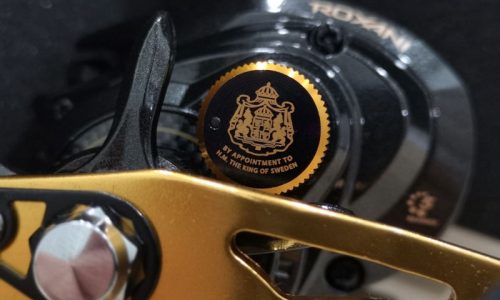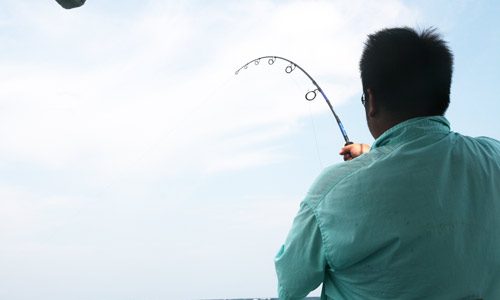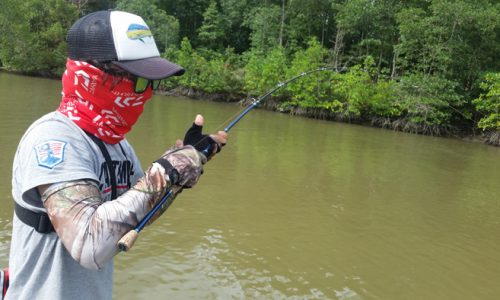Baitcasting Techniques
Part VIII - Flipping
Last issue we learn how pitching is done. Now we take a look at something quite similar to pitching but for close proximity fishing. This method of casting is called “flipping.” Flipping is a great way to send you lure quietly into a fishing zone. Imagine seeing a huge head of a snakehead enjoying the sun rays at an opening in a patch of lilies. The best way to get your lure into the little opening is to “flip” it in. This allows you to drop your lure into the zone quietly, perhaps imitating a frog taking a leap of faith, right in front, and hopefully into the mouth of the snakehead.
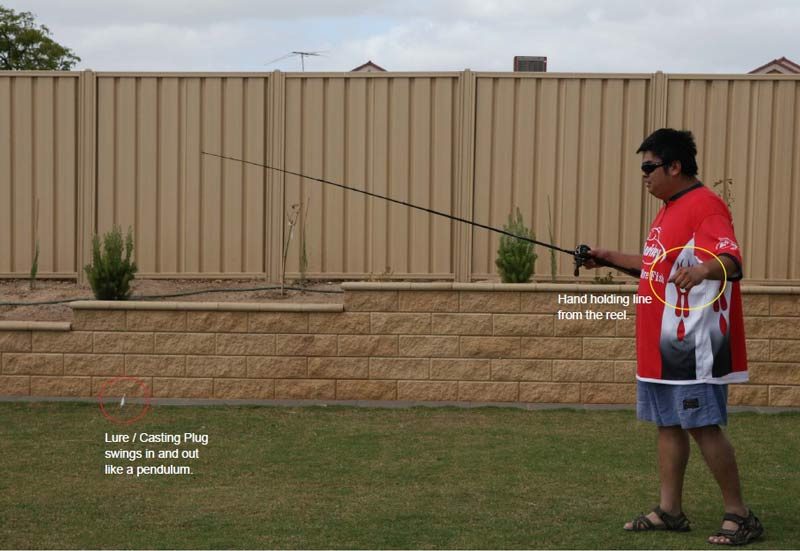
The starting stance of flipping.
The Mechanics Of Flipping
Flipping uses a pendulum to send the lure or bait out. It is very similar to pitching. The difference is what you do with your other hand that is not holding and managing the rod & reel. You basically move the rod tip up to bring the lure or bait towards you and down again allowing it to drop into the fishing zone. It is really as simple as that.
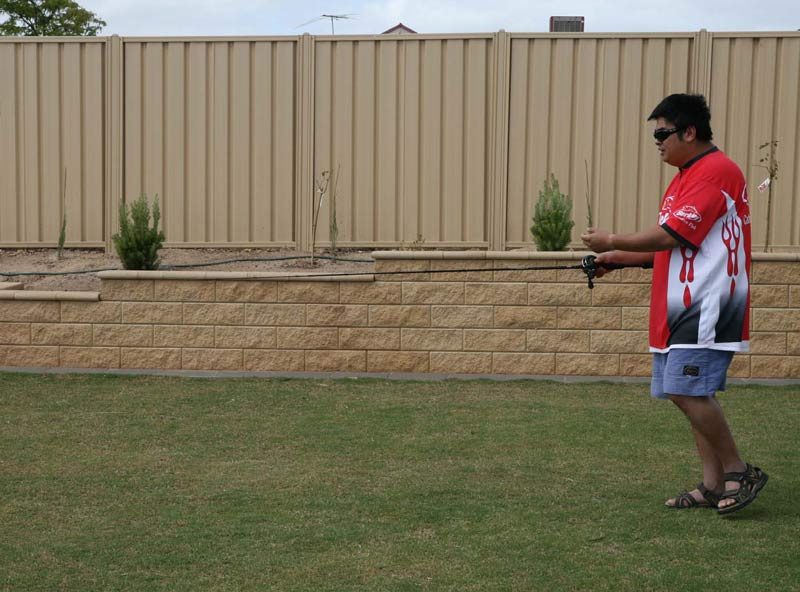
Allow line to slide through finger and move hand towards the reel as the lure / plug shoots out.
The Practise
Hold your rod in front of you with it pointing forward at about 45 degrees angle. Press down the thumbar allowing the casting plug to drop to about the same length of line from your rod tip to the reel. Engage the thumbar and swing the plug in and out by bringing your rod tip up and down, creating a pendulum. Notice that while the plug is on its way towards you and you raise the rod tip, the speed of the plug going out or forward away from you increases.
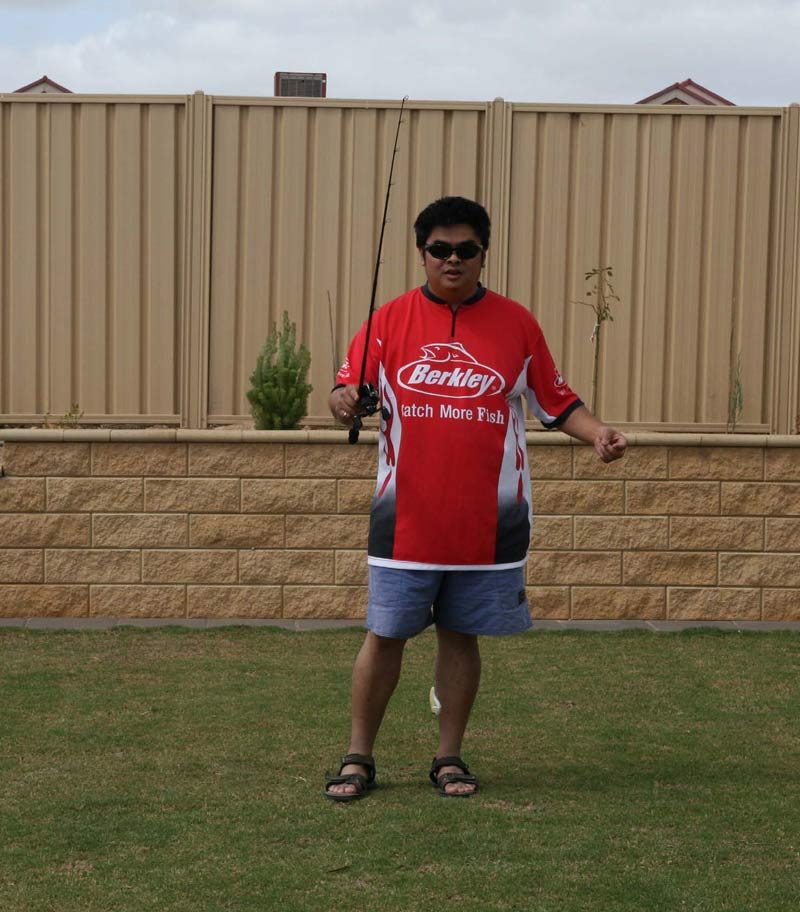
Notice the lure swinging outwards as the rod is being raised.
Putting It To Work
Before actually doing the “flip,” I assume that you are familiar with the baitcasting reel and have good spool control. Before you cast, set the tension of your drag. Note that if you are casting into opening in weeds that having too light a drag may cause you to lose the fish as it runs right into the snag. You may want to use heavier lines and a tighter drag setting. If you are casting into open water a lighter setting make sense.
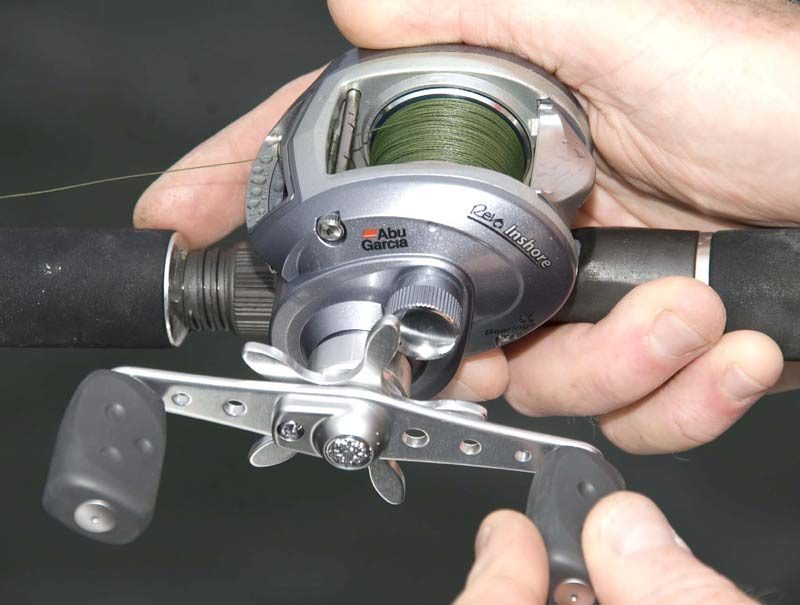
Be familiar with your baitcasting reel to have a good control.
Step One
Point the rod tip towards the ground allowing the casting plug to rest on the ground. Next, press down the thumbar of your baitcasting reel and strip off about two arms length (depending on the length of your rod) of line directly off the spool. With your free hand hold the line that you have just stripped.
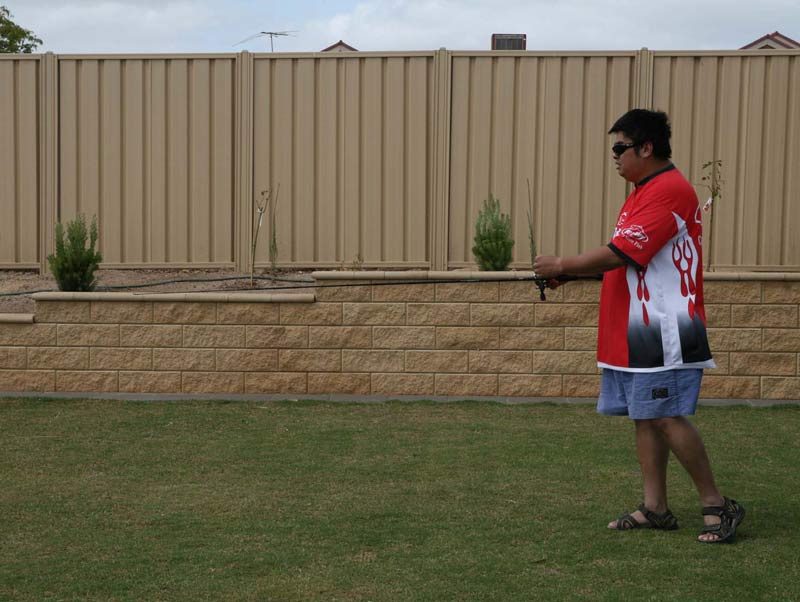
Strip line with this hand and in this case the left hand.
Step Two
Bring your rod tip upwards at about a 45 degree angle in front of you. As you do so bring the hand that is holding the stripped line towards the side of you. The plug should be hanging freely. Ensure that it is not longer than the length of your rod tip to your reel.
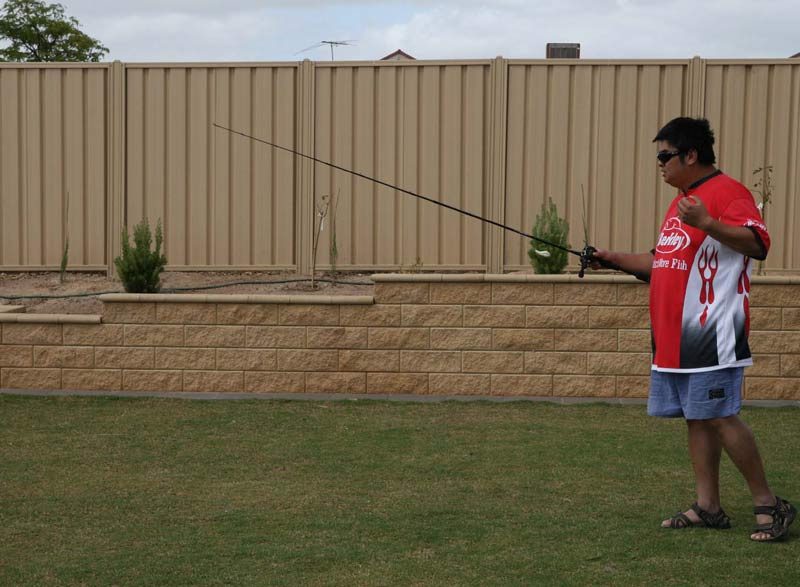
Lure going outwards towards the target.
Step Three
Bring the rod tip higher upwards allowing the plug to swing backwards towards you and as it is on its way towards you, point the rod tip down and give it a gentle flick to send the plug out (as in the practise section). As your plug glides out, it will be taking the lines that you have in your other hand with it. Allow the line in your other hand to slide through your finger and as you do that, move that hand towards the reel. Allow enough line slack thus allowing the lure or bait to reach the bottom.
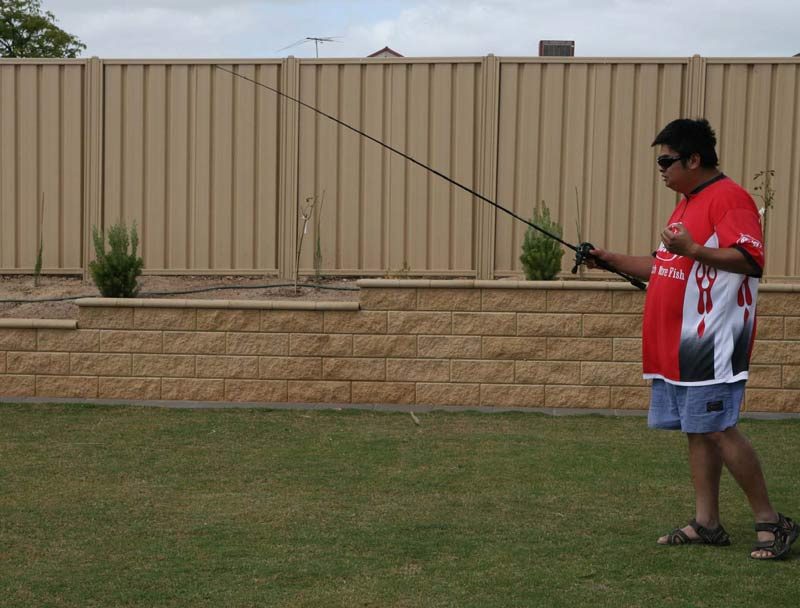
Lure Coming inwards towards the angler.
Step Four
Twitch your or jig your lure or bait and hope that the fish is willing to take your offering. If nothing happens bring back the lure by bringing your rod up and the hand holding the line back to your side. Then do the flip again.
That is basically how flipping is done. Remember that flipping is not for long casting distance but for close proximity fishing. The focus is on accuracy and a quiet entrance.

Lower the rod tip as the lure flies out towards the target.
Advertisement
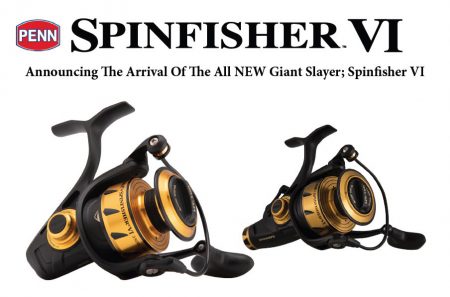
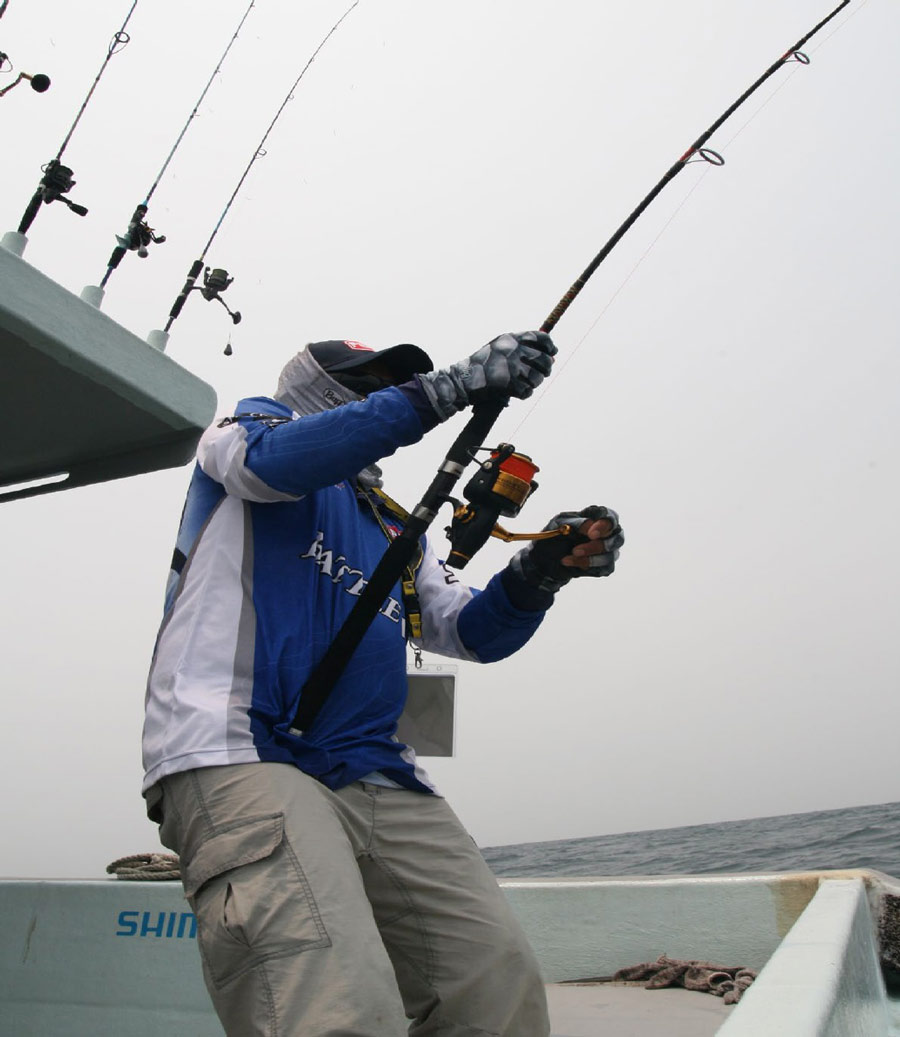
Contact us
For more information or should your have enquiries, do drop us an email.

